Huawei - Latest News on Huawei, Top News, Photos, Videos | Business Standard
WHAT IS HUAWEI
Huawei
Technology company Follow
Huawei is an information and communication technology company headquartered in Shenzhen, Guangdong, China. Founded by Ren Zhengfei in 1987, the company initially manufactured telephone exchange switches and later expanded to telecommunications networks. A global company, Huawei claims to have deployed its products and services in more than 170 countries. In 2012, it overtook Ericsson as the largest telecommunications equipment manufacturer in the world.
Huawei forayed into the mobile phone business in 2003, and shipped its first phone, the Huawei C300, in 2004. The company’s mobile phone division was among the first to adopt Google’s Android operating system. In 2012, its first Android-based smartphone, the Huawei U8220, was unveiled at the annual Mobile World Congress technology event. In partnership with Google, the company launched the Huawei Nexus 6P in 2015. Over the years, the company has developed its own Emotion user interface, which is a customised version of the Android operating system with additional tools and features powering most of its smartphones now. Huawei is China’s largest smartphone manufacturer and the world’s second-largest, next only to South Korea’s Samsung.
Huawei has a subsidiary named Honor that also designs and sells smartphones. It was initially started as an original design manufacturer (ODM), but in 2019 it was made an independent original equipment manufacturer (OEM).
Besides, Huawei also has a subsidiary that designs and builds mobile phone chipsets. Named HiSilicon, the subsidiary develops system-on-chips based on architecture licensed from ARM that are exclusive to Huawei’s devices. HiSilicon was the first chipmaker to introduce a dedicated neural processing unit for handling artificial intelligence and machine learning operations in smartphones. In 2018, the chipmaker also became the first to introduce a 7NM-based mobile phone chipset, the Kirin 980, and a 5G-ready Balong 5000 modem. In 2019, Huawei also unveiled its first foldable device concept called Huawei Mate X.
Though the company has a global presence, it faced some difficulty in certain regions over alleged espionage and cyber security breach. In May 2019, Huawei was restricted from doing commerce with US companies, tossing the company’s 5G rollout plans and smartphone business. However, in June 2019, US president Donald Trump eased the sanctions earlier on Huawei by allowing Google to license its Android platform to Huawei.
Why You Shouldn't Buy Huawei Phones If You Care About Privacy
If you're worried about the privacy implications of your Huawei phone, here's what you need to know.
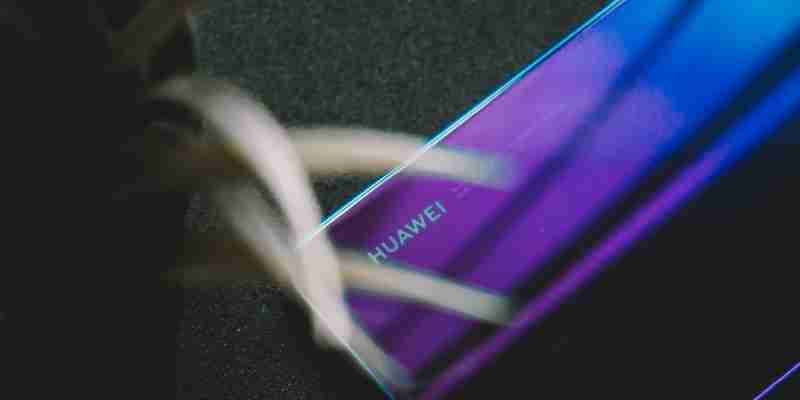
What would you say if I told you that your Huawei phone could be spying on you? You'd probably call me a conspiracy theorist. But would you believe that multiple countries' intelligence communities, including the US, feel the same way?
Whether you're worried about the privacy of your Huawei devices or would simply like to stay in the know concerning your smart devices, here's everything you need to know.
Are Anti-Huawei Claims Evidence-Based?
Many skeptics attribute the anti-Huawei sentiment by the US government to protectionism or wanting to restrict international trade in order to support domestic alternatives. But over the past few years, the intelligence and tech communities of various western countries were expressing their concerns with Huawei devices and privacy.
Early in 2018, the head of six major US intelligence agencies issued a warning at a Senate Intelligence Committee hearing. They cautioned that US citizens shouldn't use any commercial products offered by Chinese companies Huawei and ZTE.
Tech journalists claimed that there was no solid evidence that Huawei and other Chinese brands employ any hidden and malicious privacy invasion. But more recently, Huawei devices have taken the center stage in cyberattacks and European country's cybersecurity reports and concerns.
In 2012, Australia's telecommunications network was under attack when a software update with malicious code was installed on their Huawei devices, an incident only made public in 2021. Over the course of seven years, between 2012 and 2019, the breach was confirmed by two dozen former national security officials in both the US and Australia.
Governments Globally Warn Against Huawei
While it's unlikely that Huawei and other Chinese brands would be entirely banned for the average consumer, multiple governments are looking to minimize and ban the use of Huawei technology in their telecommunications and official work.
Additionally, Sweden and the UK have banned telecommunication companies from using Huawei devices on the 5G network, and are looking to phase out all Huawei devices by 2027.
In 2021, Lithuanian and Estonian cybersecurity experts advised against the use of network equipment from China's Huawei, with the latter proposing a ban that's yet to be approved by the local government:
The ban comes as part of an amendment to the Electronic Communications Act which must now receive approval from the country's President Alar Kris. According to the CommsUpdate, the amendments are aimed at bringing Estonian legislation in line with EU standards.
In 2016, an immigration officer at the Hong Kong consulate in Canada denied immigration applications for two Chinese Huawei employees. The consulate implied that there was evidence of espionage not available to the public. The denial letter stated:
"... there are reasonable grounds to believe that you are a member of the inadmissible class of persons described in section 34(1)(f) of the Immigration and Refugee Protection Act."
Huawei and the Communist Party
In the 2018 Senate Intelligence Committee hearing, FBI Director Chris Wray explained that much of the concern relate to the very unsettling relationship between all Chinese companies and the Chinese Communist Party.
Wray stated that the government was:
"... deeply concerned about the risks of allowing any company or entity that is beholden to foreign governments that don't share our values to gain positions of power inside our telecommunications networks."
The statement "beholden to foreign governments" is a reference to a Communisty Party law that requires all Chinese companies to work for State intelligence agencies if requested. The Communist Party often writes itself into company law, and there's nothing the company or investors can do about it.
This means that if Huawei were to acquire control over a large part of the telecommunications market in the western world, the Chinese intelligence community could potentially have access to user data. It could also intercept, or even shut down, all communications from those devices.
The risk is apparently high enough that the Pentagon bans the sale or use of Huawei or ZTE phones on US military bases. Pentagon spokesman Maj. Dave Eastburn hinted that intelligence communities have substantial evidence of a serious threat, but that, "for security reasons, I can't get into the technical aspects of potential threats."
The Canadian government may not be as vocal as the US intelligence community on the matter, but there has long been talk of a similar ban on the use of these devices on Canadian military bases.
Related: Android Is Watching: Ways a Typical Smartphone Is Monitoring You
Does Huawei Really Spy on You?
Privacy Protection Concept - With Copyspace
Tech journalists writing that animosity toward Huawei is unfounded are overlooking considerable history. There is evidence that justifies avoiding the use of Huawei, KTE, or any other Chinese-made telecommunication products, including:
A Washington Post review went over more than 100 confidential Huawei PowerPoint presentations and suggests that Huawei may be involved in the mass surveillance programs China is conducting.
The CEO and founder of Huawei, Ren Zhengfei, joined the Communist Party in 1978. He was also a high ranking member in the engineer corps for China's People's Liberation Army (PLA).
In 2016, numerous Chinese phones, including one branded as "Blu", were infected with third-party firmware from Shanghai Adups Technology. That software transmitted user data back to Chinese servers.
In 2012, a group of former intelligence officers known as the Langley Intelligence Group Network (LIGNET) published a surprising report. According to the group, "a sensitive LIGNET source associated with Huawei" reported that Huawei had used an "undisclosed electronic backdoor that allowed it remote access to the company's equipment without permission."
In 2014, a Huawei engineer was caught hacking a mobile tower in Andhra Pradesh. This compromised the Indian government-owned Bharat Sanchar Nigam’s (BSNL) network.
A 2015 FBI report indicated that Huawei had been subsidized by the Chinese government to the tune of $100 billion. This begs the question, what does the Chinese government get in return for that substantial investment?
Some even claim that the Chinese government's real interest isn't national security, but obtaining trade secrets from Western companies.
Related: Joker Malware Infects Over Half a Million Huawei Devices
Are You at Risk From Mass Surveillance?
Chinese devices aren't the only privacy and security threats the average user is facing. There's NSA spying, Facebook privacy failures, and constant phishing threats.
Even if you're not involved with your country's government, your personal data and information can still play a role in the grand scheme of things. It's unnerving to think that yet another government might be trying to view your communications and your web usage. Because the malware is baked right into the firmware, it's nearly impossible for a regular user to identify that it exists.
Consider a scenario where you may use a Hauwei or KTE phone to have a conversation with a friend or a work colleague. It could be a discussion about a business deal, a programming project you're working on, or important business meetings. You could inadvertently pass along proprietary information to a foreign government without even realizing it.
Stepping Away From Chinese Devices
Avoiding phones made by Chinese manufacturers is a good start. But don't forget that there are many other things you need to do to protect the security of your personal data.
Switching to more secure tools and services also helps. If you don't want to go hunting for them, try a ready-made suite of services like Librem One, which is driven by open-source software.
Huawei’s P20 Pro is a hugely promising phone that will upset Americans
This week in Paris, I witnessed a subtle but profound moment of change in the mobile industry. It came when Huawei announced its next flagship phone, the P20 Pro, will cost €899 (more than $1,100), and no one in the audience blinked, winced, or otherwise expressed dissatisfaction. The company whose name was previously one half of a rhyming couplet with the words “who are they?” just came out with a super expensive device to rival the iPhone X and Galaxy S9, and everyone was perfectly fine with that. Not many phone makers are able to rise up into the premium market after starting out in the budget segment, but Huawei is doing it at speed and to great effect.
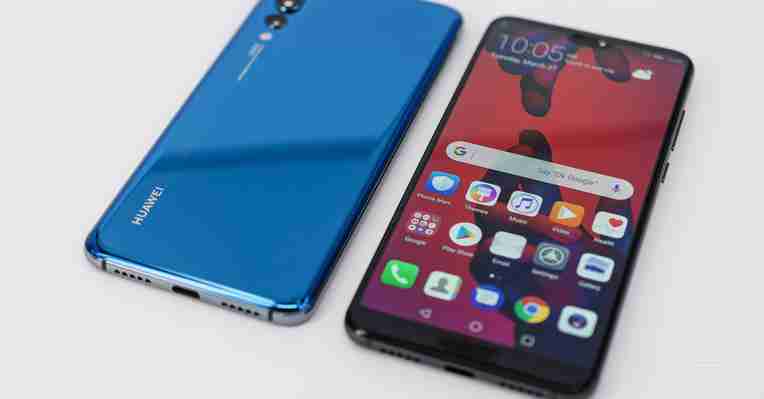
At roughly the same time as Huawei’s triumphant launch on European soil, US electronics retailer Best Buy was cutting ties with the company and discontinuing sales of its products. Earlier in the year, AT&T had reneged on an agreement to sell the Mate 10 Pro smartphone in its carrier stores, reportedly due to pressure from suspicious US authorities. Verizon is believed to have bowed to the same behind-the-scenes diktat a couple of weeks later, and American intelligence agencies have issued unanimous advice to the country’s citizens to avoid using Huawei phones. For more than five years, the US has been issuing unsubstantiated warnings about Huawei’s relationship with the Chinese government, and 2018 has brought that antagonism to the fore.
So Huawei is both flourishing and perishing, depending on the geography you look at. The Chinese company is both the darling of major pan-European carrier networks like Telefónica, Deutsche Telekom, and Vodafone, and the untouchable pariah for US operators wary of its potential links to international espionage. There’s an obvious dissonance between these two positions, and I find it notable that Germany and the UK both rely heavily on Huawei for networking equipment. The first is a country famous for being extremely scrupulous about consumer privacy and data security, and the second is America’s closest political ally. At this point, it feels like US spy agencies have to either put up concrete allegations and evidence of wrongdoing on Huawei’s part, if there is any, or allow the company to carry on its business. The burden of proof is on the accusers.
It’s an undeniable loss for Huawei to miss out on one of the biggest premium phone markets in the world just as it’s ramping up its premium phone offering. But even without the US customers it’d dearly love to have, I expect this company will continue along its current upward trajectory. The P20 Pro marks a massive upgrade over last year’s mediocre P10, scoring major innovation kudos with its new triple-camera system, a thin design that nevertheless carries a huge 4,000mAh battery, and an utterly gorgeous two-tone colorway that shows Huawei developing its own style and panache.
To my eyes, Huawei is going through the evolution that Samsung underwent over the course of many years — going from a craven iPhone copycat to a confident design leader — condensed into the span of 12 months. Huawei is already one of the top three phone vendors in the world without a presence in the US market, and the scale of demand in its native China is substantial enough to offset that absence. Specifically on the premium front, Huawei’s opulent $2,600 Porsche Design Mate RS (a souped-up variant of the P20 Pro) has a special red color intended solely for mainland China.
In all of this, the US consumer is losing out the most. The US phone market is, for all practical purposes, a duopoly. Most people get either the Samsung or the Apple flavor of smartphone pie because Galaxy S and iPhone devices are the most abundant and most forcefully advertised ones in carrier stores. Countless companies have tried and failed to make a business out of selling phones without carrier support and endorsement in the US: Nextbit failed, HTC and Sony failed, Razer is currently failing, and Essential failed spectacularly. Huawei can be counted among that group, too, especially now that even Best Buy doesn’t want to touch its products.
The problem with the Samsung-Apple dominance in the US is perfectly illustrated by the case of this year’s Galaxy S9, which can be uncharitably summed up as a Galaxy S8 with the fingerprint sensor in the right place and some horrifying AR Emoji thrown in. What does the US phone buyer do when Samsung or Apple shows complacency, incompetence, conservatism, or some combination thereof? What’s the fallback plan if you don’t want to make the increasingly difficult switch to another operating system? If you’re on Android, you could try your luck with LG, perhaps, but that’s the totality of it. Google’s excellent Pixel phones still lack the widespread distribution to have any effect on this situation.
Without Huawei, the US phone market is poorer than it would otherwise be. Hell, if the P20 Pro turns out to be even two-thirds as good as its launch event promised, Americans will have legitimate reason to gripe about not having easy access to one of the best smartphones in the world. With a strong presence in China and increasing brand awareness in Europe, Huawei is well-positioned to keep growing, even without the considerable boost that a US carrier deal might have brought. Industry analysts now expect to see Huawei redirect its unspent US marketing budget toward raising the company’s profile in Western Europe.


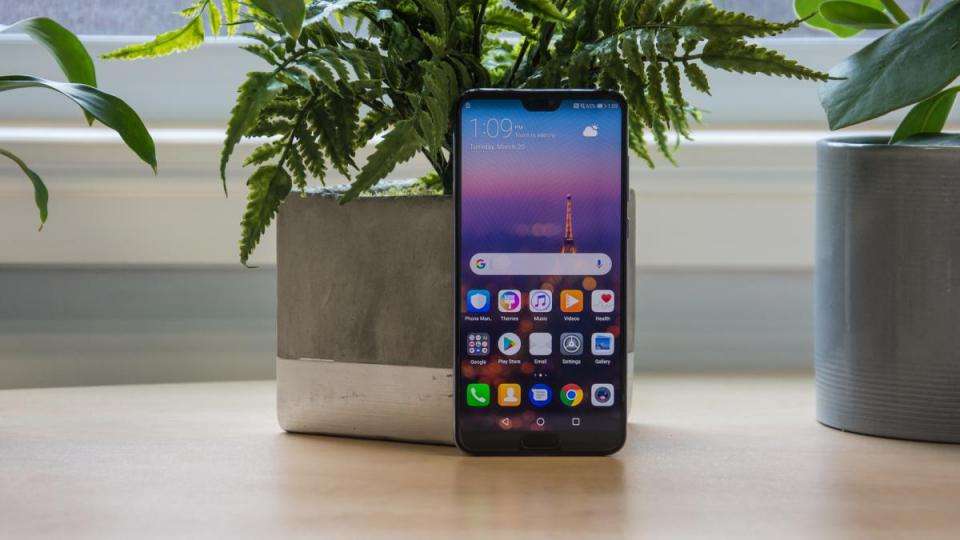
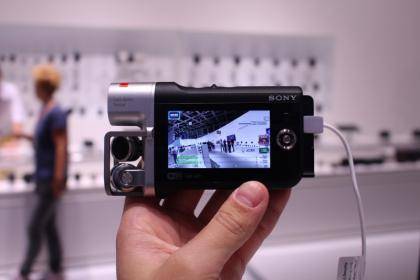
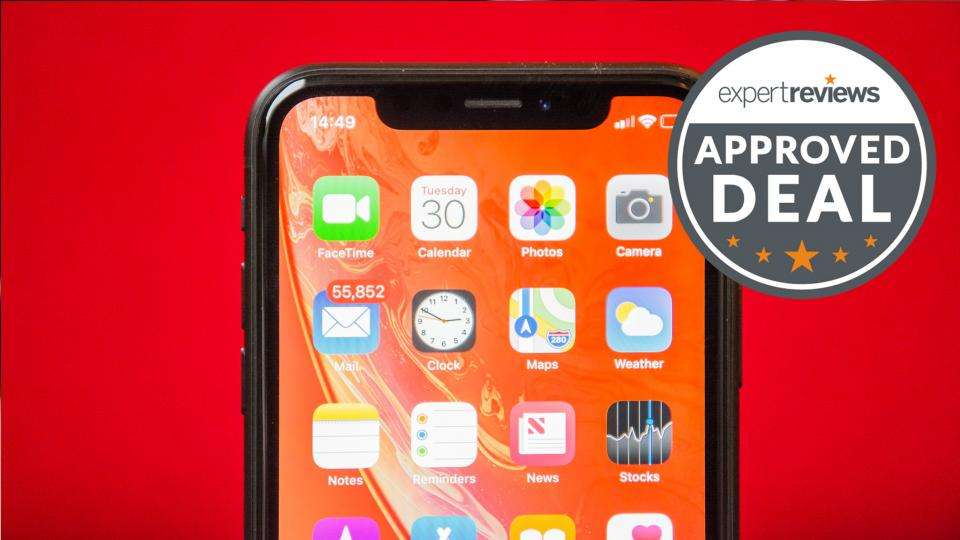
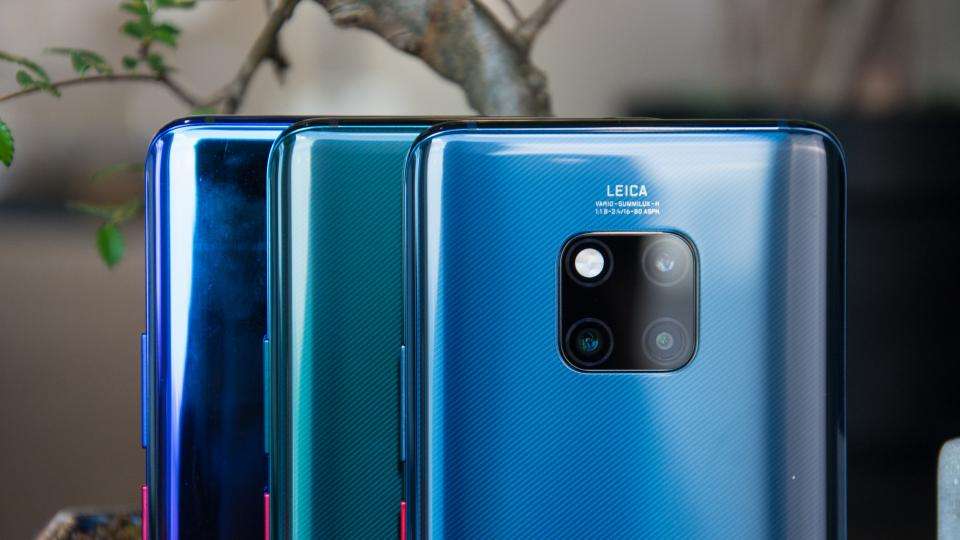
Leave a Reply